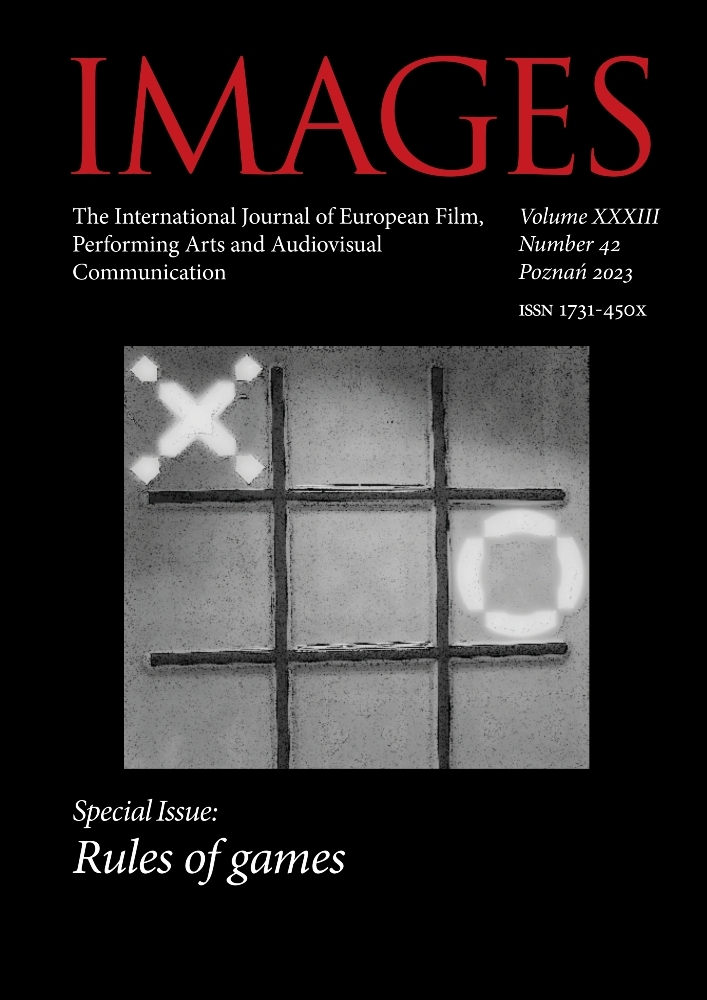Abstrakt
This article provides an introduction to the study of the transformation of the survival horror genre. The author discusses the genre determinants of horror games from the historical perspective, draw- ing particular attention to the moment when the classic survival horror formula emerged. She also describes the changes over the years that led both to the need to update the genre framework and to the division into classic and post-classic horror games. She also analyses the mechanics typical of contemporary productions using horror elements.
Bibliografia
Bycer J., Game Design Deep Dive: Horror, London 2022 DOI: https://doi.org/10.1201/9781003265115
Carroll N., The Philosophy of Horror or Paradoxes of the Heart, London 1990 Garda M.B., Interaktywne fantasy. Gatunek w grach cyfrowych, Łódź 2016
Has-Tokarz A., Horror w literaturze współczesnej i filmie, Lublin 2011
Kjeldgaard M., The Use of English in Japanese Media, „Gengo to bunka: Aichi daigaku gogaku kyouiku kenkyuushitsu kiyou” [„Language and Culture: Aichi University Language Education Laboratory Bulletin”] 2014, nr 58(31), s. 47–58
Lilly M.C., Zombies, Play, and Uncertainty in Red Dead Redeption: Undead Nightmare, [w:] The Playful Undead and Video Games. Critical Analyses of Zombies and Gameplay, red. S.J. Webley, P. Zackariasson, London 2020, s. 151–163 DOI: https://doi.org/10.4324/9781315179490-12
Mańkowski P., Wielka księga gier, Warszawa 2018
Nae A., Immersion, Narrative, and Gender Crisis in Survival Horror Video Games, London 2022 DOI: https://doi.org/10.4324/9781003019022
Perron B., The World of Scary Video Games. A Study in Videoludic Horror, New York 2018
Rouse III R., Match Made in Hell: The Inevitable Sucess of the Horror Genre in Video Games, [w:] Horror Video Games: Essays on the Fusion of Fear and Play, red. B. Perron, Jefferson, NC – London 2009, s. 15–25
Thierren C., Games of Fear: A Multi-Faceted Historical Account of the Horror Genre in Video Games, [w:] Horror Video Games: Essays on the Fusion of Fear and Play, red. B. Perron, Jefferson, NC – London 2009, s. 26–45
Williams A., History of Digital Games. Developments in Art, Design and Interaction, Boca Raton 2017 DOI: https://doi.org/10.1201/9781315715377
https://www.mobygames.com/game/last-of-us
https://www.metacritic.com/game/gamecube/resident-evil-4
https://www.capcom.co.jp/ir/english/business/million.html#tab6
Adventure (William Crowther, Don Woods, 1976)
Alien Isolation (Creative Assembly, 2014)
Alone in the Dark (Infogrames, 1992)
Amnesia: The Dark Descent (Frictional Games, 2010)
Cold Fear (Dark Works, 2005)
Days Gone (Bend Studio, 2019)
Dead by Daylight (Behaviour Interactive, 2016)
Doom 3 (id Software, 2004)
F.E.A.R. (Monolith Productions, 2005)
Friday the 13th (Domark Software, 1985)
Friday the 13th (Gun Media, 2017)
Green Hell (Creepy Jar, 2019)
Halloween (Wizard Video, 1983)
Haunted House (Atari, 1982)
Haunting Ground (Capcom, 2005)
Kuon (FromSoftware, 2004)
Left4Dead (Turtle Rock Studios, 2008)
Mystery House (On-Line Systems, 1980)
Outlast (Red Barrels, 2013),
Red Ded Redemption: Undead Nightmare (Rockstar San Diego, 2010)
Resident Evil (Capcom, 1996)
Resident Evil 2 Remake (Capcom, 2019)
Resident Evil 4 (Capcom, 2005)
Silent Hill (Conami, 1999–2012)
Silent Hill 4: The Room (Konami, 2004)
Siren (Sony Interactive Entertainment, 2004)
Space Invaders (Taito, 1978)
Texas Chainsaw Massacre (Wizard Video, 1983)
The Last of Us (Naughty Dog, 2013)
The Long Dark (Hinterland, 2017)
The Quarry (Supermassive Games, 2022)
The Suffering (Surreal, 2004)
Undead Nightmare (
Until Dawn (Supermassive Games, 2015)
World War Z (Saber Interactive, 2019)
Licencja
Prawa autorskie (c) 2023 Dominika Staszenko-Chojnacka

Utwór dostępny jest na licencji Creative Commons Uznanie autorstwa 4.0 Międzynarodowe.

